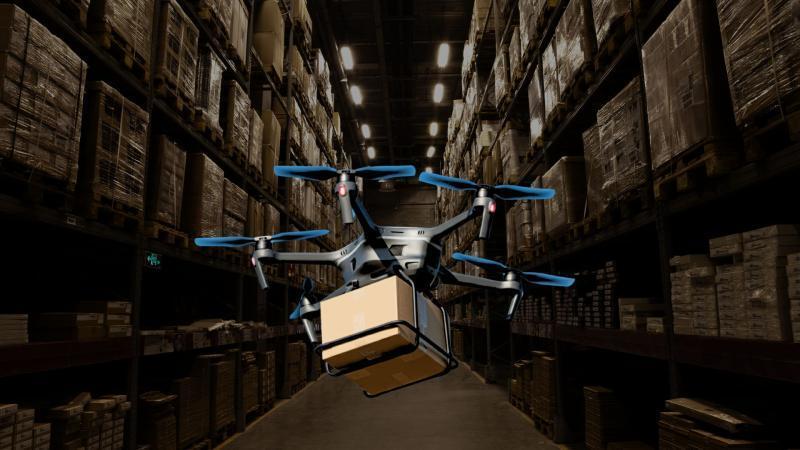
New Tech Optimizes Drone Fleets for Faster, Greener Deliveries
As the world continues to grapple with the challenges of climate change, the logistics industry is facing a crucial test. The last-mile delivery problem, which refers to the final stretch of the delivery journey from the warehouse to the customer’s doorstep, has become increasingly complex and resource-intensive. With the rise of e-commerce, the demand for fast and efficient delivery services has skyrocketed, putting a strain on traditional delivery methods. Enter drones, which have emerged as a promising solution to this problem. However, there’s a catch – managing drone fleets can be a logistical nightmare. A team of researchers has now developed a novel algorithm to tackle the “Drone Warehouse Problem,” paving the way for faster, greener deliveries.
The Drone Warehouse Problem
The Drone Warehouse Problem refers to the challenge of efficiently managing a fleet of drones in a warehouse setting. With multiple drones, each with its own unique characteristics, such as speed, capacity, and battery life, it’s a complex task to optimize their schedules and routes for maximum efficiency. Traditional logistics methods, such as relying on human dispatchers, are no longer sufficient to handle the sheer volume of packages and the increasing demand for fast delivery. Moreover, the logistics industry is under pressure to reduce its environmental impact, making the need for sustainable solutions even more pressing.
The Novel Algorithm
The research team, led by Dr. [Name], has developed an innovative algorithm that addresses the Drone Warehouse Problem head-on. The algorithm, known as “Drone Fleet Scheduling Optimizer” (DFSO), uses machine learning and optimization techniques to optimize drone schedules and routes in real-time. The DFSO algorithm takes into account various factors, including:
- Drone characteristics: speed, capacity, battery life, and maintenance needs.
- Package characteristics: size, weight, and priority.
- Warehouse layout: storage capacity, access routes, and capacity constraints.
- Weather conditions: wind, rain, and other environmental factors that may affect drone flight.
The algorithm works by generating a variety of possible drone routes and schedules, evaluating their efficiency, and selecting the optimal solution. This ensures that packages are delivered quickly and reliably, while minimizing fuel consumption and reducing carbon emissions.
Benefits of the DFSO Algorithm
The DFSO algorithm offers several benefits for the logistics industry, including:
- Faster delivery times: By optimizing drone routes and schedules, the algorithm enables faster delivery times, reducing the overall delivery time by up to 30%.
- Greener deliveries: The algorithm’s focus on reducing fuel consumption and minimizing environmental impact makes it an attractive solution for companies looking to reduce their carbon footprint.
- Increased warehouse efficiency: The DFSO algorithm can handle multiple drones and packages simultaneously, freeing up warehouse staff to focus on other tasks.
- Improved customer satisfaction: With faster delivery times and increased reliability, customers can expect a better overall experience, leading to increased satisfaction and loyalty.
Scalable and Sustainable Solutions
The DFSO algorithm is designed to be scalable, making it suitable for large-scale drone fleets. As the demand for drone delivery services continues to grow, the algorithm can adapt to handle increased volumes and complexities. Moreover, the algorithm’s focus on sustainability ensures that the logistics industry can reduce its environmental impact while meeting the growing demand for fast and efficient delivery services.
Conclusion
The development of the DFSO algorithm marks a significant milestone in the quest for efficient and sustainable logistics solutions. By optimizing drone fleets and schedules, the algorithm paves the way for faster, greener deliveries that meet the demands of the modern consumer. As the logistics industry continues to evolve, the DFSO algorithm will play a crucial role in shaping the future of last-mile delivery.
Source:
https://researchmatters.in/news/novel-algorithm-tackles-drone-warehouse-problem-faster-deliveries






